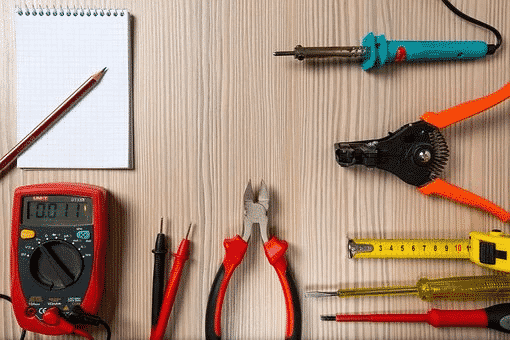Importance of the J Standard Soldering Training

J-STD-001 training or simply referred to as “J Standard” training, is a key training program for anyone involved in the electrical manufacturing or assembling industry. It is a vital part of IPC’s several workforce training programs. The J-STD-001 course was specially created to help technicians, operators, soldering professionals, and other workforce members involved in assembly lines gain a clear introduction to commonly used industry terms and concepts. The course also informs students about the high standards they have to maintain while working in the electronics manufacturing industry.
After passing this IPC Workforce Training course, students can expect significant improvements in their skill levels. After all, the “J Standard” training was created to address the serious gaps in workforce skills that halted many companies’ production capacities. The value that soldering professionals, production managers, technicians, operators, etc., gain from these training programs helps them fill high-paying positions in the electronics manufacturing industry.
What Can the Students Expect from this Training?
The IPC J-STD-001 standards are globally recognized. Any professional who intends to work with soldering materials must abide by J standard soldering processes to be considered employable. These students must master the IPC J-STD-001G standard, which is a globally recognized document that clarifies the international guidelines regarding the assembly of PCBs or electronics. Eighteen countries provide feedback every year to improve the IPC J-STD-001G standards. So, yearly changes to these documents are very common. In these documents, students can find –
- The manufacturing industry’s consensus on how to assemble PCBs and conduct electronic assemblies in the safest and the most time-efficient way possible.
- These documents share the latest industry criteria for soldering professionals and technicians.
- New graphics and images are added to these documents every year so that industry professionals can easily comprehend what standards of professionalism manufacturers expect from them.
- The J-STD-001 standards are developed as per IPC-A-610 standards. Anyone who feels lost while understanding IPC J-STD-001 standards should refer to IPC-A-610 documents for additional explanations on the requirements.
The IPC J-STD-001G document is a must-have for anyone affiliated with the electronics industry.
What do Will Students learn?
On this accredited course, students learn key skills that keep them updated with the changes in electronics industry standards. They also learn important quality assurance methods. The J-STD-001 training courses consist of four modules –
- Cleaning, conformal coating, and printed circuit board requirements.
- Wires, component mounting, and terminals.
- General materials used in soldering and assembly processes. By going through this module, students learn how to meet assurance requirements in their professional lives.
- General standard information and requisites.
This course clarifies all the requirements and standards that technicians, assembly line operators, and facility supervisors need to know. Taking this course is the best way for them to improve their technical knowledge and advance their careers. This training program lasts six to eight hours on average. But, instructors can modify these courses to make them last longer or shorter for some students. After gaining a practical introduction to the J-STD-001 standards, students will be able to –
- Receive recognition and employment opportunities from employers worldwide. Employers want to hire accredited soldering professionals who know what the acceptable standards of dealing with electrical materials and electronic assemblies are.
- Efficiently navigate, detect, and apply the criteria specified in the J-STD-001 standard to improve their quality of work. Assembly line operators, technicians, supervisors, soldering professionals, etc., can all be fully aware of what’s expected of them at their workplaces.
- Improve their chances of getting employed at higher-paying jobs. The average soldering professional earns $39,160 per year or $18.83 per hour. After passing this program, their chances of landing significantly higher-paying jobs increase.
The J-STD-001 training program involves the use of engaging videos, images, quizzes, and other activities that are designed to help students remember important criteria about the electronics assembly process. If any professional was ever unsure about any IPC standard, they won’t be after going through the J-STD-001 training program.
Benefits of IPC J-STD-001 Training to Organizations
In January 2021, John Deere Electronic Solutions became the first integrated electronics components manufacturing company to be re-certified for the second time to the IPC J-STD-001. This only proves how seriously companies treat IPC’s foremost standard, the IPC J-STD-001. Both the electronics manufacturing industry and the PCB assembly industry are extremely competitive and ever-changing. Professionals who receive this accreditation are more attractive to employers because –
- Manufacturing companies can cut costs by having a staff that’s trained to meet specific industry requirements.
- Electronic manufacturing companies like John Deere Electronic Solutions can demonstrate to their customers that they always abide by industry-approved quality control standards.
- Employers know that professionals who pass the IPC J-STD-001 training have the relevant knowledge and skills to handle manufacturing responsibilities while staying compliant to industry standards.
Hence, all soldering professionals, electronics assembly experts, and anyone involved in the electronics assembly and manufacturing industry must receive this training!
